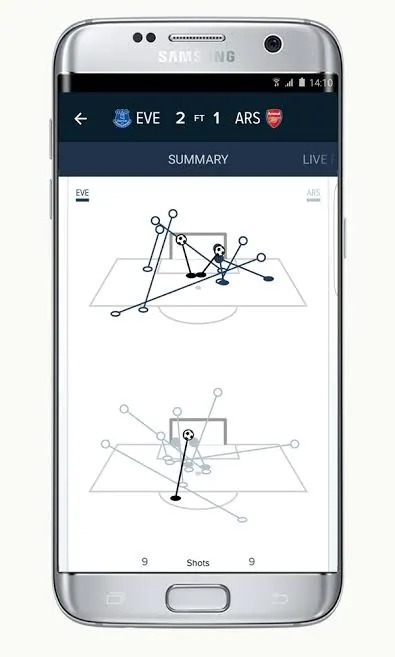Everton might have been the side that Arsenal have enjoyed most success against since the inception of the Premier League – winning 29 matches – but Arsene Wenger’s side suffered a blow to their title hopes on Tuesday as they went down 2-1 at Goodison Park.
When Alexis Sanchez opened the scoring it seemed inconceivable that the hosts would claim just a second league victory over the Gunners in their last 19 attempts. Yet that is exactly what they managed as Seamus Coleman was set up by Leighton Baines shortly before the interval to level and Ashley Williams headed home with four minutes remaining. In a dramatic conclusion, Baines cleared from the line as Alex Iwobi appeared poised to equalise and Phil Jagielka was dismissed for a second booking.
The hosts purposefully went out to try to expose their opponents’ perceived weakness in terms of combativity. In order to do this, they were happy to sacrifice possession of the ball, achieving only 42 per cent, and accuracy of their passing. What was important to the home side was that they profited from the chances they created.
There was little ponderous build-up play from Ronald Koeman’s outfit, who sought primarily to attack down the right side, where Coleman and James McCarthy both enjoyed stellar displays. Nearly 50% of their attacks went down that flank, while Arsenal surprisingly channelled 40% of their play through the middle.

The usual fluency of Arsene Wenger’s men was successfully disrupted by a competitive and determined display from the home midfielders. The Gunners average 562 passes per match in the Premier League with an accuracy of 83%. On Tuesday they achieved only 530 passes with a success rate of 79% - marginally down on their usual figures.
Everton’s direct approach was based around gaining territory as opposed to possession, and this is reflected by the fact they spent 30% of the time they had the ball in the final third and only 44% in the midfield. In comparison, their opponents spent 51% of the time in the heart of the pitch.
Crucially, though, their territorial advantage was sufficient to win them set-piece opportunities in the final third of the pitch, and it was here they really profited, with Williams’ goal exactly the type of moment that Koeman was playing for.
To this end, it was a fine tactical success for the home team, who knew from the outset that they could not match their guests in a technical battle. Instead, they chose to fight in a different manner, one that better suited their attributes. It may not have been especially pretty, but it paid off.
> ..... - Goal